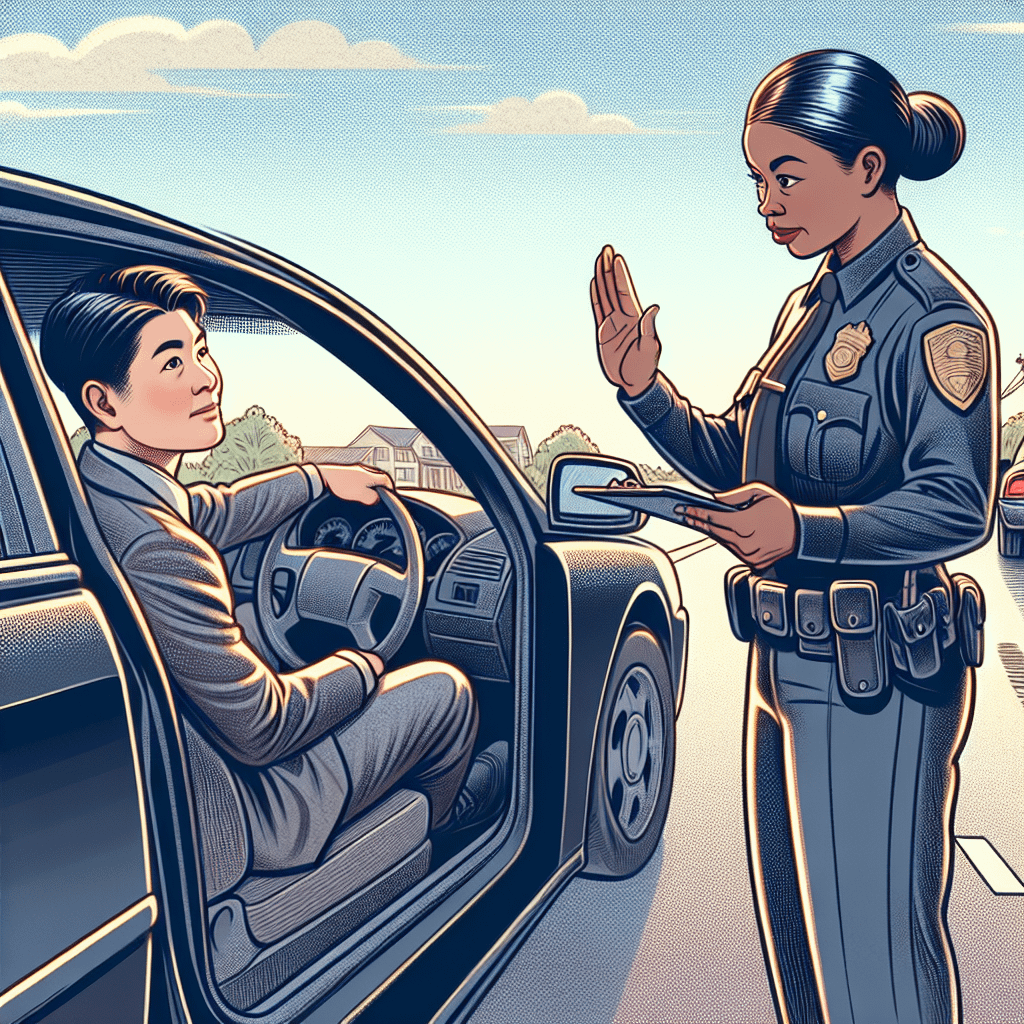Imagine you’re on a typical drive, perhaps heading home after work or en route to meet a friend. Suddenly, you see flashing lights in your rearview mirror. After safely pulling over, the police officer approaches and makes what feels like an unexpected request: they want to search your car. This situation can be stressful, and you may be uncertain about your rights. Can you refuse a police search during a traffic stop? Let’s delve into the essentials of this crucial topic.
The Fourth Amendment to the U.S. Constitution protects citizens from unreasonable searches and seizures, ensuring that law enforcement must have a valid reason to conduct a search. However, the practicality of these rights can become complex when applied to real-life scenarios. Here’s a breakdown of when and how these rights apply during a traffic stop.
When Can Police Search Your Car?
There are generally three main scenarios when the police can search your vehicle without your consent:
1. Probable Cause: If the police officer has probable cause to believe that your car contains evidence of a crime, they can search your vehicle without your permission. Probable cause means the officer has a reasonable basis for believing a crime may have been committed. For example, if an officer smells marijuana or sees something suspicious in plain view, this could constitute probable cause.
2. Search Incident to Arrest: If you are under arrest, the police are allowed to search your vehicle. This is typically to ensure that there are no weapons or other dangerous items readily accessible that might pose a safety risk.
3. Consent: If you give explicit permission, the officer can legally search your car. It’s critical to know that you do not have to consent—if you say no, the officer must have one of the other valid reasons to proceed with a search.
Can You Say No?
Yes, you can refuse consent to a search. If an officer asks to look in your vehicle and lacks probable cause, you are within your rights to decline. Clearly state, “I do not consent to a search.” It’s important to remain calm and polite in your response.
What If You Say No?
If you refuse a search and the officer doesn’t have probable cause or isn’t making an arrest, they need a warrant to conduct a search legally. However, be aware that refusal may not prevent the officer from obtaining probable cause during the stop. If the officer insists on the search despite your refusal, try to remain non-confrontational and compliant; you can challenge the legality of their actions later in court.
A Practical Example
Consider this: you’re pulled over for speeding. During the stop, the officer asks if they can search your car. You affirmatively decline. Without any further cause for suspicion or evidence of illegal activity, the officer should not proceed with a search. Refusing consent doesn’t shield you from tickets or warnings related to the traffic violation itself, but it protects your right to privacy.
Practical Tips
- Stay Calm and Polite: If stopped by the police, maintain composure. Being respectful can de-escalate potential tension.
- Statement of Non-Consent: Use clear phrases like, “I do not consent to a search,” if asked for permission to search your car.
- Understand Your Rights: Familiarize yourself with your rights under the Fourth Amendment. Knowing them empowers you during encounters with law enforcement.
- Document the Interaction: If you feel your rights are being violated, make mental notes or discreetly record details. Don’t interfere with the officer’s duties, but remember actions for potential legal redress later.
Ultimately, understanding your rights can help you navigate this nerve-wracking scenario with confidence. While this guide offers foundational knowledge, it’s wise to consult with a legal professional for specific advice related to your situation. Your right to refuse a vehicle search is a significant protection, but it’s one you’ll exercise most effectively when you’re informed and prepared.








